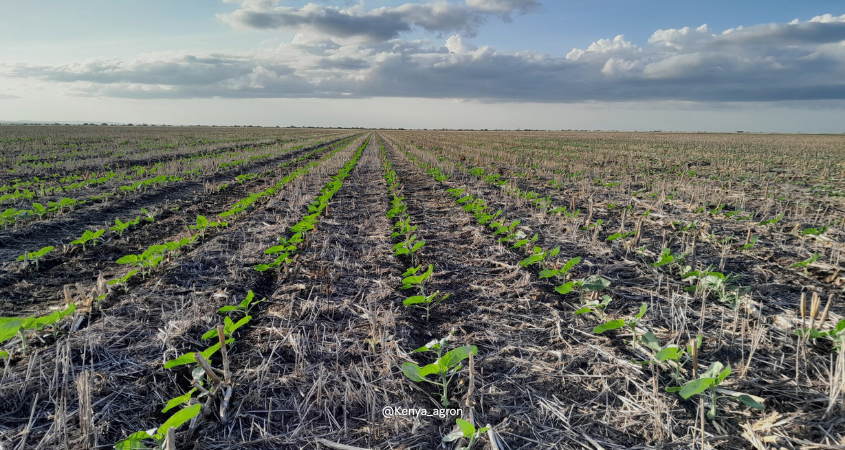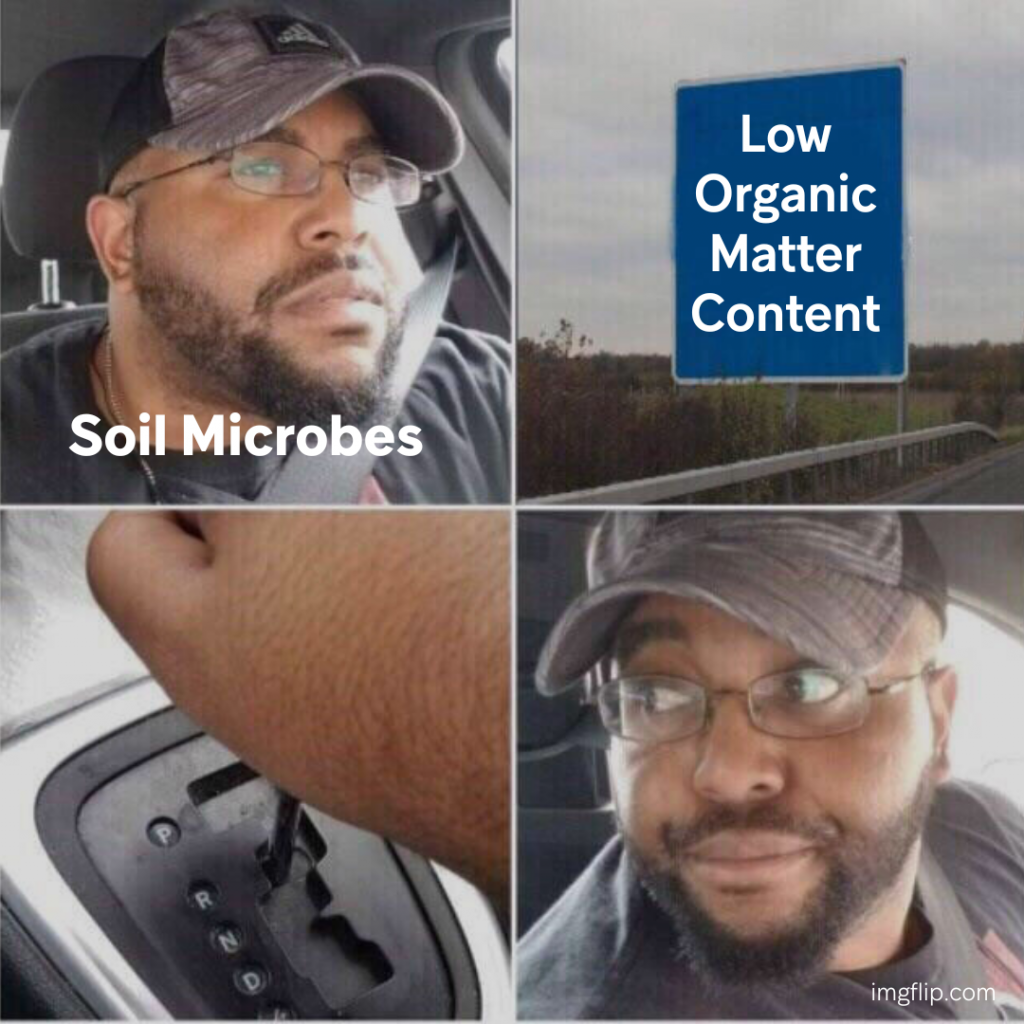
Understanding the dynamic relationship between soil microbes and soil organic matter (SOM) is crucial for farmers, agronomists, and anyone involved in soil management. Let’s explore how soil microbes and organic matter work together to create fertile and productive soils.
Soil organic matter comprises decomposed plant residues and animal manures. SOM enhances soil structure, water retention, and nutrient availability, and provides a reservoir of nutrients that plants can draw upon. Organic matter also serves as a food source for soil microbes, supporting a diverse and thriving microbial community.
Soil microbes are the primary decomposers of organic matter. Soil bacteria, fungi, and other microorganisms break down complex organic compounds into simpler forms, releasing nutrients such as nitrogen, phosphorus, and sulfur in the process. This decomposition is essential for nutrient cycling and making nutrients available to plants.

Certain soil microbes form symbiotic relationships with plants, such as mycorrhizal fungi and nitrogen-fixing bacteria. Mycorrhizal fungi extend the root system of plants, enhancing nutrient and water uptake. Nitrogen-fixing bacteria convert atmospheric nitrogen into a form plants can use. These relationships are supported by healthy levels of soil organic matter.
High organic matter content promotes microbial diversity, which is crucial for resilient soil ecosystems. Diverse microbial communities are better equipped to suppress soil-borne diseases, decompose organic matter efficiently, and support plant health. Soil management practices that maintain or increase organic matter levels, such as adding compost and manure, cover cropping, crop rotation, and reduced tillage, contribute to microbial diversity.
The interaction between soil microbes and organic matter directly impacts soil health. Healthy soils with balanced organic matter and active microbial populations exhibit improved nutrient availability, enhanced soil structure, and increased resilience to environmental stressors. This leads to higher crop yields, better quality produce, and sustainable farming systems.
In conclusion, the relationship between soil microbes and organic matter is a key driver of soil fertility and health. By adopting practices that increase soil organic matter content, farmers and agronomists can unlock the full potential of their soils. For personalized guidance on enhancing soil health through organic matter management and microbial activity, feel free to contact our experts at support@cropnuts.com.
Grow more with less
#savesoil #soilhealth #soilscience
Order our services and get to know how to improve your soil for better yeilds.